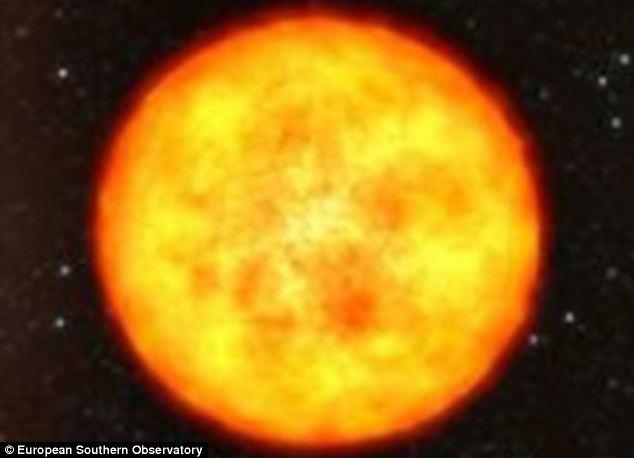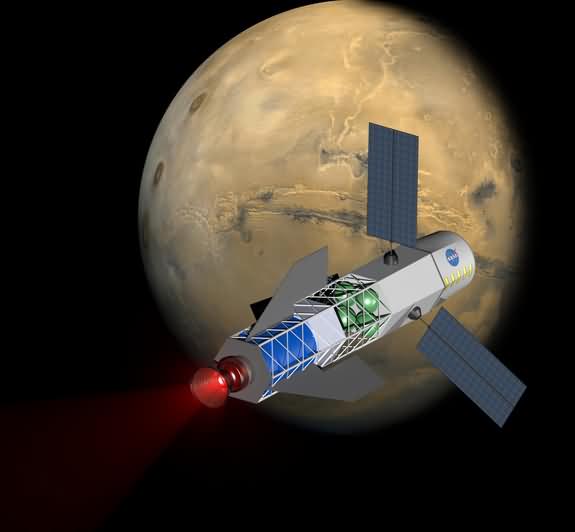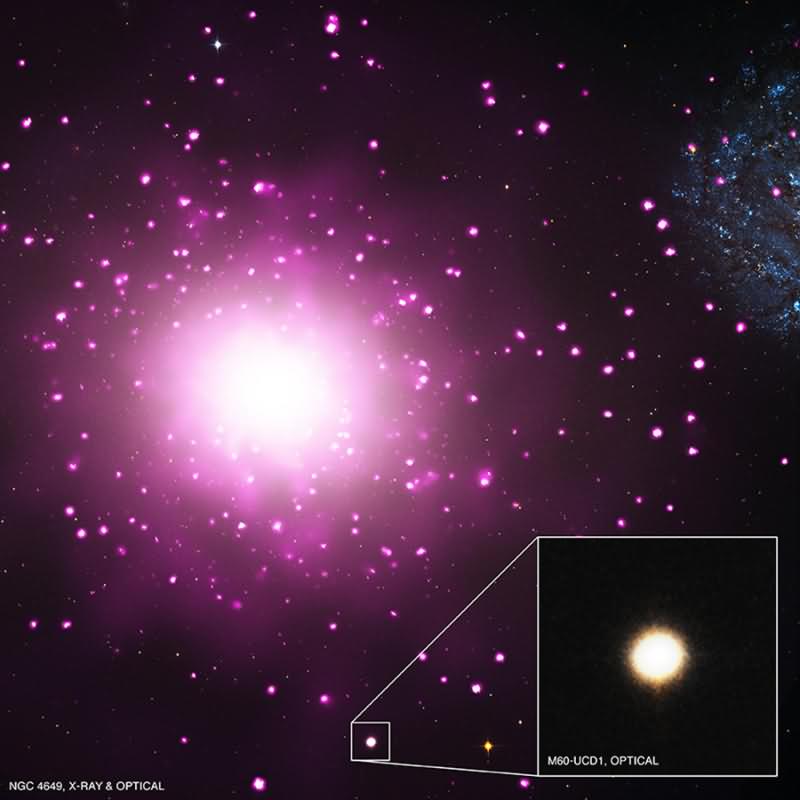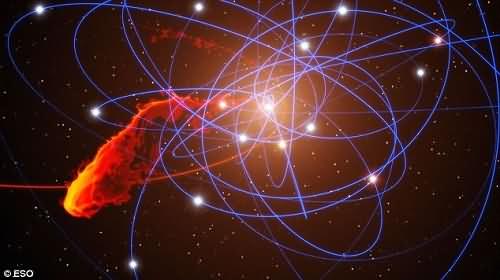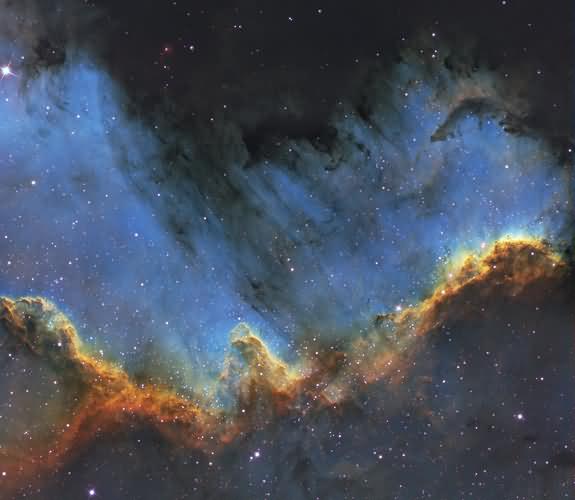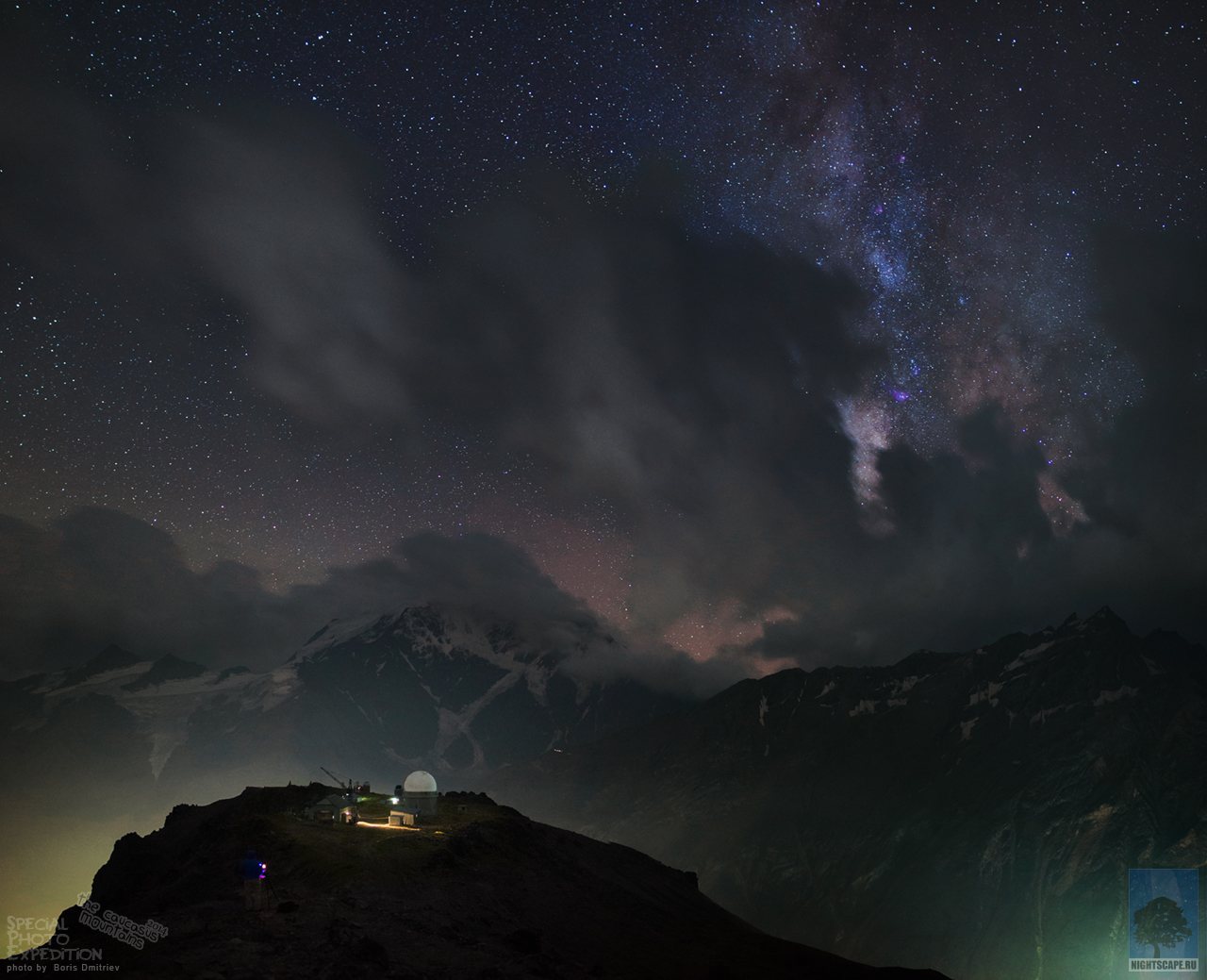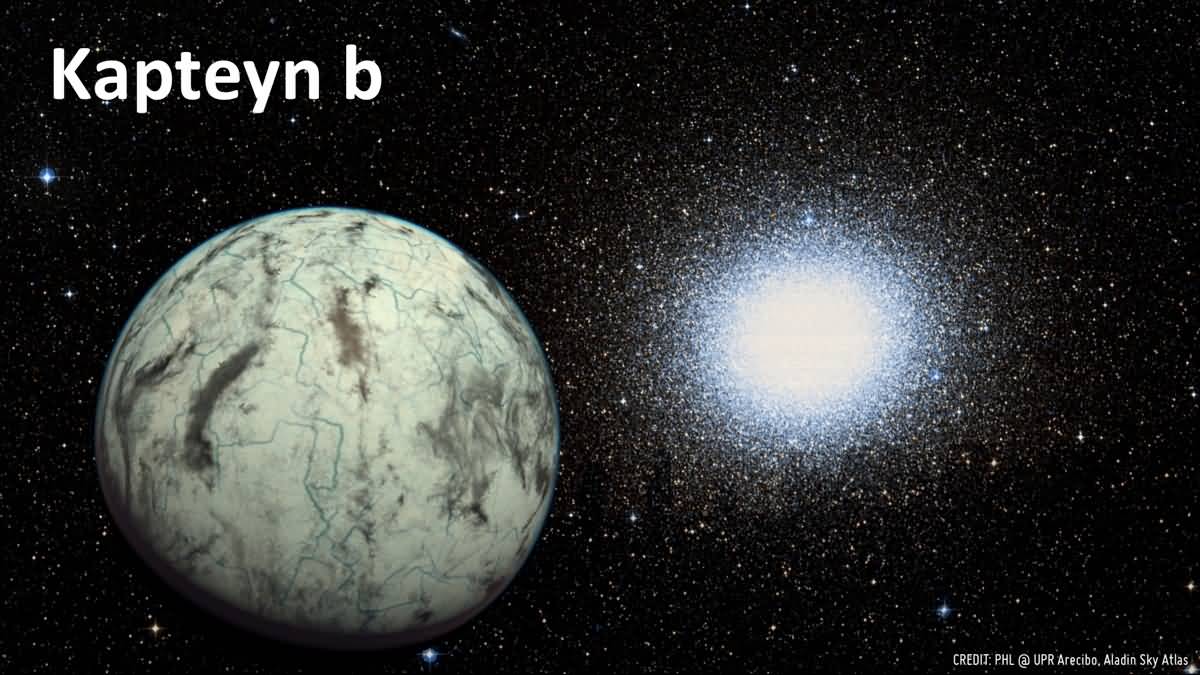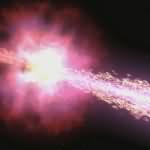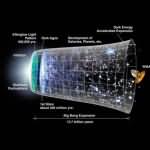Astronomy Shares – 24.01.2014
 Did you know that the star illustrated here, HD 140283, is nearly as old as the universe itself? It's considered a first-generation star and an iron-poor star. It formed 600 million years after the Big Bang, and at that time, it contained little more than hydrogen and helium. In fact, when this star was first discovered, it was considered even older than the universe, but more detailed tests revealed it wasn't. This is partly due to the inherent error in detecting an object. For example, because this star was one of the first stars, its age was determined to be 14.46 ± 0.8 billion years. This means there's a margin of error of 800 million years. Later, this margin of error was narrowed even further.
Did you know that the star illustrated here, HD 140283, is nearly as old as the universe itself? It's considered a first-generation star and an iron-poor star. It formed 600 million years after the Big Bang, and at that time, it contained little more than hydrogen and helium. In fact, when this star was first discovered, it was considered even older than the universe, but more detailed tests revealed it wasn't. This is partly due to the inherent error in detecting an object. For example, because this star was one of the first stars, its age was determined to be 14.46 ± 0.8 billion years. This means there's a margin of error of 800 million years. Later, this margin of error was narrowed even further.
Yesterday's supernova discovered You remember my news, right? Here's a better, more colorful picture of it. You see the brightness where the arrow points, right? Here's the image of that supernova explosion. Notice how you can't normally make out the stars in a galaxy in a picture because they're so small. And there you have it, the power of a mighty supernova explosion.
 In about 1 billion years, the galaxies pictured will merge, forming a single galaxy. Until that happens, the spiral galaxies NGC 2207 and IC 2163 will steal dust from each other, steal stars, and trigger new star formation. NGC 2207 is the larger one on the left, and IC 2163 is the smaller one on the right. Meanwhile, the interstellar space is so vast that stars from both galaxies will likely not collide. Except for a few exceptions. If you click on the image, you'll see a much larger version.
In about 1 billion years, the galaxies pictured will merge, forming a single galaxy. Until that happens, the spiral galaxies NGC 2207 and IC 2163 will steal dust from each other, steal stars, and trigger new star formation. NGC 2207 is the larger one on the left, and IC 2163 is the smaller one on the right. Meanwhile, the interstellar space is so vast that stars from both galaxies will likely not collide. Except for a few exceptions. If you click on the image, you'll see a much larger version.
 I couldn't resist sharing this image. Here you see the Earth rising from behind the Moon. It was taken by the Lunar Orbiter IV in 1967. However, the image was lost for 47 years before being rediscovered and presented to humanity.
I couldn't resist sharing this image. Here you see the Earth rising from behind the Moon. It was taken by the Lunar Orbiter IV in 1967. However, the image was lost for 47 years before being rediscovered and presented to humanity.
https://www.youtube.com/watch?v=VFtGHQ88Bb0
Finally, I thought I'd share this video. In it, you'll watch an animation of a black hole swallowing a star.
That's all my astronomy posts for today. If I'm not too lazy, I might write another one. From what I've seen, the psychological experiment post has gotten a lot of attention. I think you found science more interesting than astronomy. Who knows, maybe I'll write another experiment. Stay well.

